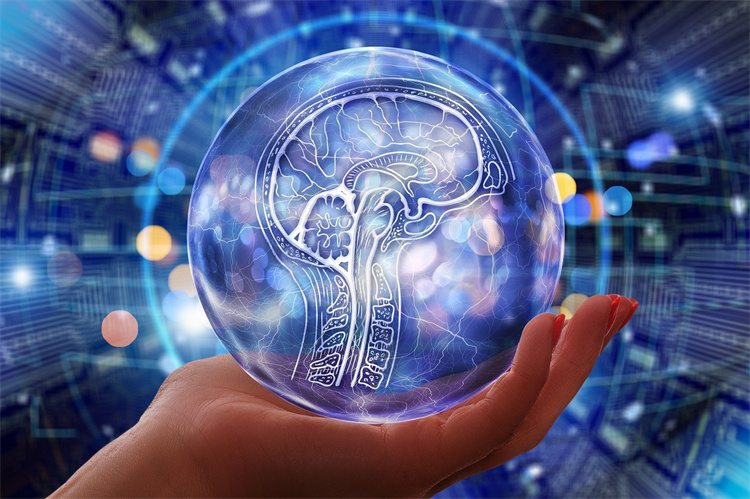Why Artificial Intelligence Is the Future of Innovation

Artificial intelligence is reshaping how industries innovate. You’ve probably noticed its impact everywhere. For example:
76% of HR leaders say companies without AI solutions will fall behind within two years.
The AI healthcare market could grow from $20.9 billion in 2024 to $48.4 billion by 2029.
AI is driving change faster than ever.
Key Takeaways
AI handles boring tasks, making work faster in healthcare, factories, and banks.
Using AI, businesses can guess trends, avoid problems, and make customers happier.
AI helps artists and writers, becoming a great partner for new ideas.
The Role of Artificial Intelligence in Driving Innovation

Automating Processes for Greater Efficiency
You’ve probably noticed how artificial intelligence is transforming industries by automating repetitive tasks. This isn’t just about saving time—it’s about doing things smarter. For example, in healthcare, AI handles administrative tasks like patient intake and medical coding, freeing up professionals to focus on patient care. In manufacturing, AI-powered robotics streamline production lines and ensure quality control. Even in transportation, AI optimizes route planning and powers autonomous vehicles.
Here’s a quick look at how AI boosts efficiency across industries:
Industry | AI Application |
|---|---|
Healthcare | Automating administrative tasks, patient intake, medical coding, and supply chain management. |
Transportation and Logistics | Optimizing route planning and enabling autonomous vehicles. |
Finance and Banking | Risk assessment, fraud detection, and personalized customer experiences. |
Retail and E-commerce | Personalized recommendations and inventory management automation. |
Manufacturing | Automation of production processes and quality control through AI-powered robotics. |
Education | Personalized learning experiences and administrative task automation. |
Entertainment and Media | Content creation, recommendation systems, and audience engagement enhancements. |
AI technology doesn’t just make processes faster—it makes them smarter and more reliable.
Enabling Data-Driven Decision Making
AI thrives on data, and you can use it to make better decisions. Businesses like Amazon and Netflix are great examples. Amazon uses AI to forecast demand and optimize logistics, ensuring faster deliveries and better inventory management. Netflix analyzes your viewing habits to recommend shows you’ll love, keeping you hooked.
AI also helps companies predict trends and reduce risks. For instance, JPMorgan Chase uses AI for fraud detection and risk management, saving millions. In supply chains, AI-driven forecasting can cut errors by up to 50%, while reducing costs and improving service levels. Whether it’s restocking shelves or planning delivery routes, AI turns data into actionable insights.
Fostering Creativity and New Ideas
AI isn’t just about numbers and efficiency—it’s also a creative powerhouse. Imagine an artist using AI to generate unique visual concepts or a musician composing melodies with AI’s help. Writers can even use AI-generated prompts to kickstart their next big story.
In technology, AI sparks innovation by analyzing massive datasets to uncover patterns humans might miss. This leads to breakthroughs in fields like design, where AI-generated images inspire new creations. It’s not replacing creativity—it’s amplifying it. You can think of AI as a collaborator, helping you explore ideas you might never have considered.
Current Applications of AI in Innovation
AI in Healthcare: Revolutionizing Diagnosis and Treatment
AI is transforming healthcare in ways you might not have imagined. It’s helping doctors diagnose diseases faster and more accurately. Machine learning models analyze massive datasets to identify patterns that humans might miss. For example, AI can predict diseases like cancer earlier, giving patients a better chance at recovery.
Here’s a quick look at how AI is making waves in healthcare:
Application Area | Description |
|---|---|
Diagnosis | Machine learning improves diagnostic accuracy by analyzing large datasets. |
Predictive Analytics | AI predicts and diagnoses diseases faster, reducing errors and saving lives. |
Workflow Management | AI automates tasks, helping healthcare professionals focus on patient care. |
AI also speeds up drug discovery. It predicts side effects and identifies candidates for clinical trials, cutting years off the process. Plus, it enhances patient experiences by enabling quicker, more accurate diagnoses.
AI in Finance: Enhancing Risk Management and Fraud Detection
The financial industry relies on AI to stay ahead of fraudsters. AI-driven systems analyze transactions in real time, spotting anomalies that could indicate fraud. Machine learning models adapt to new fraud patterns, making these systems smarter over time.
Did you know fraud losses jumped from $6.77 billion in 2021 to $8.8 billion in 2022? AI helps reduce these numbers by detecting suspicious activities instantly. It also improves credit risk assessments by analyzing diverse data sources. This means better accuracy and fewer financial risks for businesses like yours.
AI in Transportation: Powering Autonomous Vehicles
AI is the brain behind self-driving cars. It helps vehicles interpret complex environments, just like a human driver would. Neural networks allow cars to recognize patterns and objects, improving reaction times in dangerous situations.
What’s even cooler? AI models now run directly in vehicles, reducing the need for constant internet connectivity. This makes autonomous vehicles more efficient and reliable. With AI, the future of transportation looks safer and smarter.
AI in Entertainment: Personalizing Content and Experiences
Ever wondered how Netflix always knows what you want to watch? That’s AI at work. It analyzes your viewing habits to recommend shows and movies you’ll love. This kind of personalization keeps you engaged and coming back for more.
AI also powers chatbots that enhance customer service. In fact, 98% of companies use data-driven insights to improve user experiences. The global AI market in media and entertainment is expected to hit $8.4 billion this year. Clearly, AI is reshaping how you enjoy content.
AI in Supply Chain Management: JUSDA’s Intelligent Solutions
Supply chain management is more complex than ever, but AI is simplifying it. JUSDA’s Supply Chain Management Collaboration Platform uses AI to optimize every step of the process. From demand forecasting to real-time shipment tracking, it’s all about making supply chains smarter.
For example, JUSDA’s platform integrates AI with IoT sensors to provide real-time insights. It predicts shipment delays and helps businesses manage inventory more effectively. Companies like Sharp have already seen a 20% reduction in logistics costs thanks to JUSDA’s solutions.
AI is revolutionizing supply chain management, and JUSDA is leading the charge. It’s not just about efficiency—it’s about staying competitive in a global market.
The Future Potential of AI

Personalized Medicine and Precision Healthcare
Imagine a world where your treatment plan is tailored just for you. AI is making this a reality. It analyzes your genetic data and medical history to create personalized treatments. This approach improves diagnostic accuracy and reduces treatment costs. For example, AI can predict disease risks and even suggest preventive measures. It’s also speeding up drug discovery, helping researchers find effective medicines faster.
AI-based portals are transforming how you interact with healthcare providers. These tools keep you engaged and informed, leading to higher satisfaction rates. In cancer treatment, AI is advancing genomics and phenotyping, enhancing precision medicine. Did you know AI reduces diagnostic mistakes by up to 30%? It’s also improving treatment outcomes for chronic diseases by 25%.
Autonomous Systems in Everyday Life
AI is bringing autonomous systems into your daily life. Self-driving cars are becoming smarter, thanks to reinforcement learning and edge AI. These technologies allow vehicles to process data in real time, improving safety and efficiency. Smart assistants like Alexa and Siri are also evolving. They’re learning to adapt to your preferences, making your interactions more seamless.
The integration of AI with IoT is another game-changer. It’s creating smarter homes and cities by enabling real-time data analysis. Imagine a fridge that orders groceries when you’re running low or traffic lights that adjust to reduce congestion. AI is turning these ideas into reality.
AI for Sustainable Technologies and Climate Solutions
AI is helping tackle climate change. It analyzes historical climate patterns to predict future trends, aiding in disaster management. For instance, AI-driven models can forecast natural disasters and optimize resource allocation. This technology saves lives and minimizes damage.
Smart grids powered by AI balance energy supply and demand. They promote renewable energy use, making energy systems more sustainable. In agriculture, AI drones monitor crops, optimizing irrigation and pest control. Machine learning also improves rainfall predictions, helping farmers plan better. AI is revolutionizing how we address environmental challenges.
JUSDA’s Vision for AI-Driven Supply Chain Innovation
JUSDA is redefining supply chain management with AI. Its Supply Chain Management Collaboration Platform uses AI to optimize operations. From demand forecasting to real-time shipment tracking, it’s all about efficiency. The platform integrates AI with IoT and blockchain, providing real-time insights and predictive capabilities.
JUSDA’s solutions help businesses reduce costs and improve service delivery. For example, Sharp achieved a 20% reduction in logistics costs using JUSDA’s platform. By leveraging AI, JUSDA is setting new standards in global supply chain innovation.
Challenges and Ethical Considerations
Addressing Bias in AI Algorithms
Bias in artificial intelligence can lead to unfair outcomes, especially in areas like hiring or lending. You’ve probably heard stories about AI systems unintentionally favoring one group over another. For example, Facebook’s ad-serving algorithm once showed job listings based on gender stereotypes, even when candidates had equal qualifications. This happens because AI learns from historical data, which often contains biases.
To tackle this, developers need to focus on fairness and accountability. They should research the causes of bias in data and define what fairness means for each use case. Updating training data based on feedback also helps. Building trust in AI requires transparency and clear accountability when things go wrong. Without these steps, the technology risks losing public confidence.
Mitigating Job Displacement and Workforce Impact
AI automation is changing the job market. While it creates new opportunities, it also replaces repetitive tasks, leaving some workers at risk. You might wonder how industries can adapt. The answer lies in upskilling. Workers need training to stay relevant. Did you know 95% of employees believe they need new skills because of AI disruption? Companies should offer courses and seminars to bridge this gap.
Clear communication about job security is equally important. When organizations provide guidelines on AI use and promote human-AI collaboration, they ease workforce concerns. Governments, businesses, and schools must work together to prepare you for the future of work.
Ensuring Ethical Use and Transparency
For AI to truly benefit society, it must be ethical and transparent. You deserve to know how AI systems make decisions, especially when those decisions affect your life. Transparency means explaining how data is collected and used. Accountability ensures someone takes responsibility for AI’s actions.
AI systems should also prioritize fairness and privacy. Developers must protect user data and avoid biases. When artificial intelligence operates ethically, it builds trust and delivers better outcomes for everyone.
Artificial intelligence is shaping the future by solving complex problems and driving innovation. It enhances efficiency, fosters creativity, and creates opportunities across industries like healthcare, transportation, and education. By addressing challenges responsibly, you can ensure AI benefits everyone. Its tools, like natural language processing and computer vision, will continue transforming how you live and work.
See Also
Transforming Our Lives: The Impact of AI Technology
Exploring AI Integration: The Next Generation Supply Chain
Enhancing Productivity: Innovations in AI for Supply Chains
Automation Ahead: Advantages of Advanced Manufacturing Warehousing
Digital Twins: Revolutionizing Supply Chain Management Strategies
